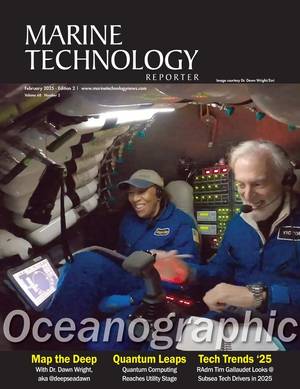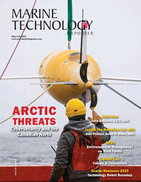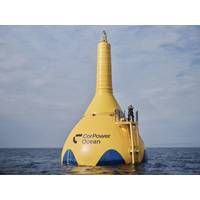
CorPower Ocean, NTNU Join Forces for AI-Based Wave Energy Project
the adoption of artificial intelligence (AI) for improved performance and control in wave energy technology.The WACE project, short for Wave energy AI-based Control Enhancement, is now underway and is set to run until November 2025.CorPower Ocean is being supported by project partner Norwegian University of Science and Technology (NTNU).A model-based design framework will be used in the WACE project. After establishing requirements for the closed-loop control system, an AI-based optimal control strategy is being designed along with a hardware-in-the-loop (HIL) test setup.CorPower Ocean anticipates that
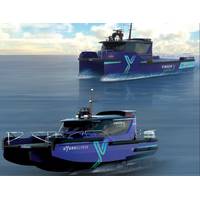
Malaysian FPSO Giant Yinson Invests in Norwegian Autonomous Vessel Start-up
to realise waterborne mobility of the future. Our technology enables our customers to offer safer and more efficient operations while enabling entirely new mobility concepts such as urban waterborne mobility with reduced crew.”Zeabuz was founded in 2019 as a spin-off from the Norwegian University of Science and Technology's progressive research centre for autonomous marine operations and systems. The company has developed a proprietary autonomy platform that "is scalable, certifiable, and suitable for both new designs and retrofit of existing vessels."Their business model is to provide

Hearing the Light: DAS could Revolutionize Subsea Defense
During the summer of 2020, a group of Norwegian University of Science and Technology (NTNU) marine scientists based on the Svalbard archipelago successfully detected the vocalizations of baleen whales frolicking in Arctic Ocean and North Sea, some 70-90 kilometers away. At first blush this might seem somewhat unremarkable, given that researchers regularly monitor whale behavior, and whalesong has long been known to traverse great distances. But what made this particular set of observations special was the sensor of choice. It wasn’t a hydrophone, the trusted tool of the marine bioacoustics trade.
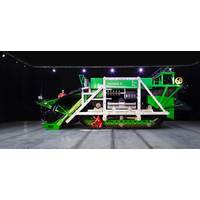
MTR100: Deep-sea Mining May Prove Pivotal in the Climate Change Discussion
the mid-water column or closer to the seafloor, and how this may impact ecosystem processes and organism function.Dr. ir. Rudy Helmons, assistant professor for offshore and dredging engineering at Delft University of Technology, and adjunct associate professor for deep-sea mining at Norwegian University of Science and Technology, is experimenting with the nodule collection process, as well. In a previous EU H2020 project, Blue Nodules, the collection technology was proven as effective, with a hydraulic or mechanical nodule collector skimming the seafloor, separating nodule from sediment, and discharging

Wilhelmsen, NorSea Acquire Stake in Norwegian Deep-sea Mining Firm
Eyes Sea Change in Deep Dive for Metals Instead of Oil"Rich with in-demand metals, such as copper, zinc, cobalt, scandium, and additional rare earth elements, the minerals on the Norwegian Continental Shelf (NCS) alone are estimated, by an independent study conducted by the Norwegian University of Science and Technology, to be worth a total of USD 100 billion and could support the creation of 20000 new jobs," the press statement by the duo reads.NorSea Group and Wilhelmsen will be represented on the Loke Marine Minerals’ board by Wilhelmsen’s Espen Gjerde, VP Strategy and M&
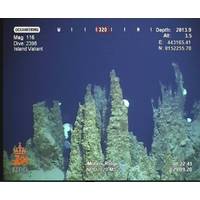
Environmental Groups Call on Norway to Stop Deep-sea Mining Plans
Naturvernforbund (Friends of the Earth Norway) said."Mining on the seabed can destroy species and habitats that have an important role for both the sea and the planet."Steinar Loeve Ellefmo, an associate professor who heads a study program on deep-sea mining at the Norwegian University of Science and Technology, said the study wasn't premature."I do not think it can be too early to collect data to learn," he said. (Reporting by Nerijus Adomaitis; editing by David Evans)Norway Eyes Sea Change in Deep Dive for Metals Instead of OilNorwegian Seismic Company Dives into
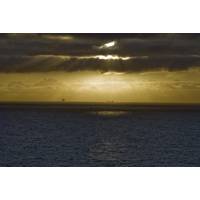
Norway Eyes Sea Change in Deep Dive for Metals Instead of Oil
copper, zinc, cobalt, gold and silver, according to the Norwegian Petroleum Directorate which conducted the work.There could be up to 21.7 million tonnes of copper - more than the world's copper output in 2019 - and 22.7 million tonnes of zinc on the Norwegian continental shelf, Norwegian University of Science and Technology (NTNU) researchers have estimated.Related: Norwegian Seismic Company Dives into Deepsea Mining BusinessMean estimates however are far lower, at 6.9 million and 7.1 million tonnes, respectively."Copper mining inside Norway's jurisdiction will probably never replace extraction
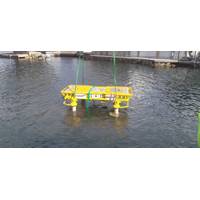
Blue Logic Wins ONS Award for Subsea Docking Station for ROVs
; Eelume, SAAB, Oceaneering and Saipem – to refine the solution and ensure it's functional for the various players.Designed and built close to Blue Logic’s headquarters in Sandnes near Stavanger, multiple docking stations have already been tested, including at the Norwegian University of Science and Technology (NTNU) underwater test facility in Trondheimsfjorden, near Trondheim, as well as by SAAB in Sweden, Oceaneering at the Tau Autonomy Center near Stavanger. One is also due to go to Italy where Saipem will verify its functionality with its underwater vehicles."This work has
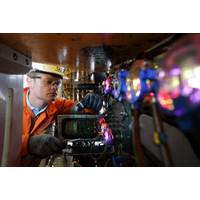
Ocean Infinity Launches Large-scale Ocean Study
Subsea technology and data company Ocean Infinity said it is partnering with the Norwegian University of Science and Technology (NTNU) to undertake a long term program of marine environmental scientific research onboard its’ vessels.Currently underway, this long term study will lead to the creation of the world’s largest body of physical samples from the deep ocean. The material gathered, which will be made available to scientists and academics, will contribute to providing a base line study of deep sea ecosystems. The information obtained from the samples will contribute to better understan
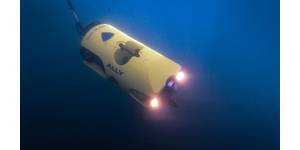
 February 2025
February 2025
